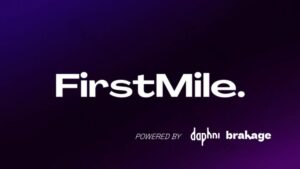Burnout, the untold story about being a startup founder
Let’s say it, from a statistical viewpoint, being a founder is definitely not a good situation. As a founder, you are 50% more susceptible to having a mental health issue, 10 times more likely to be bipolar, 2 times more likely to suffer depression or even 3 times more at risk to develop 3 co-occurring mental health issues…
While the issue is obvious, founders don’t want to talk openly about mental health issues and especially one of its worst forms: burnout. Startups are a world with a lot of uncertainty and founders need to convey an image of strength and stability. However, flagship examples of burnout are still popping: Elon Musk, Joel Gascoigne founder of Buffer, Rand Fishkin founder of Moz… It seems that you need to have been super successful to openly talk about it.
I had the opportunity to exchange with Dr. Patrick Legeron, one of France’s most renowned specialists on burnouts, who helps many entrepreneurs and executives. Dr. Legeron is also a co-writer of the report on burnout for the French Medicine Academy. He is also the author of the book Stress at Work.
“The 20th century was the century of body hygiene while the 21st century will be the century of mental hygiene”
Ok, but what the hell exactly is burnout?
I read a lot of different things about what is a burn-out and for me, it was still a nebulous concept close to depression to me until I met Dr. Legeron. He explained to me that there are 3 simple criteria to diagnose someone who has reached a situation of burnout:
- Emotional exhaustion: the feeling of having lost strength, anymore, for instance, someone who is not anymore able to keep focus while reading as more as 3 lines or making a simple calculation.
- Depersonalization, and especially a lack of empathy, seeing someone suffer in front of you without reacting.
- Reduction of self-accomplishments, none of my accomplishments count anymore.
While it is easy to assimilate burnout to situations such as your teenager who doesn’t want to wake up from his bed, or a friend who is negative because he or she is going through a difficult period, burnouts are definitely different! Recent research even suggests that scientists have found burnout biomarkers that appear simultaneously to the burnout symptoms. It materializes the fact that once you have reached a certain point, your body just says stop. The average recovery time for burnouts is actually two years without working, with strong medication and being monitored by a specialist helping you to rebuild your emotions. This is really a serious matter!
Scary… so how does it happen?
Having a burnout is almost always a consequence of stressful periods, which can be clustered in 3 categories:
- Normal stress: you feel pressure on a specific moment/deadlines but only for a few minutes and the body recovers
- Hyper stress: you experience very intense periods of stress associated with severe symptoms
- Burnout: once you reach this zone, the recovery is a long and hard process
The first state is part of life, but spending too much time in a hyper stress state can lead you to face burnout. We all have health capital, which we cannot exceed, but we are definitely not equal on this matter. Some people will fall into a burnout after a few days in hyper stress, while others can stay in the hyper stress phase for more than a year. As you can understand, burnouts are not just appearing one morning, without any previous alerts.

What does hyper stress look like?
Symptoms of you being in the hyper stress zone can be: difficulties to digest, difficulties to sleep, cramps, palpitations, sweating, chronic pain, erectile troubles (actually too high level of stress is responsible for 50% of the consultation in the area), but also less tangible factors, such as the feeling of being less creative, having frequent bad moods or even some memory lapse. According to Dr. Legeron, a very classic sentence from patients is “sometimes I am wondering if I have Alzheimer”.
These symptoms are very often ignored during the first days, but as underlined by Dr. Legeron: “if you were vomiting blood every morning, you would go to the doctor, people should consider hyper stress symptoms the same way”. Having several symptoms is definitely not okay.
“One of the hard parts of being a founder is that you come back home every night with 20 items left on your to-do. A good way to avoid this is to focus on the 2 or 3 main priorities.”
Where it’s getting hard for founders…
After such a description, the logic would be to try to avoid the hyper stress zone at all costs. However, it is not that simple… From a very high-level perspective, personality accounts for one-third of the risks while environmental factors account for two-thirds.
Personality factors:
The hard part is that this hyper stress can actually be pleasant and exciting for some kind of people. Hyper stress can be triggering at first, it stimulates the secretion of adrenaline and cortisone. When creating companies, many founders are actually looking for that kind of sensation. Why else would anyone create a tech company, working very long hours, earning little money and having to solve huge piles of issues, all in a context of high uncertainty?
Actually people who are the most susceptible to suffer from burnouts are people who:
- seek adrenaline
- show overinvestment at work
- are perfectionists
Environmental factors:
Environmental and organisational factors also play a key role. The contexts which enhance the probability of burnouts are contexts with:
- uncertainty
- stressing elements
- lack of rewards
- high working demands
- lack of autonomy or ways to change the situation
- emotional pressure
Let’s be honest with ourselves, early-stage startups founders match several items from this list.

Good news, you can avoid it!
In a nutshell, as a founder, you are often at risk in both your personality and your professional environment. Being aware and understanding the problem is the first part of the answer, but some simple advice (easy to say when you are not under immense stress) can also help:
Advice 1: Even things, which go without saying, are better if spoken about: do not sacrifice your personal life totally, passion cannot excuse everything. Having passions outside of work and a stable personal environment will definitely reduce the risks.
Advice 2: You need to speak up once you see the first symptoms. A close founding team with a strong culture of honesty and mutual support can help to manage these difficulties, otherwise, coaches or therapists can be very helpful. Loneliness feeling is definitely a hard part of being a founder and doesn’t help.
Advice 3: Obviously having a healthy life with regular sleeping hours and physical activity, even if it’s only walking as being sedentary increases the risks.
Advice 4: Make high priorities instead of to-do. One of the hard parts of being a founder is that you come back home with still 20 items left on your to-do. A good way to avoid that is to focus on the 2 or 3 main priorities that you have for the day and come back home with a full to-do but a free mind.
Advice 5: Last but not least, management is key! As companies grow, the need to add a management team with strong expertise is of tremendous importance. Many founders are actually in difficulty since their companies grow faster than their management teams.
Mental health is the new wealth
As well described by Zola, factory workers were the main victims of the industrial revolution, developing serious troubles due to gesture repetition. My opinion is that mental health is the new big issue and we do have all the solutions needed to reduce the issue problems related to it. Creating a startup is hard by nature, but we have the responsibility to help the founders who are the creative force of our society. VCs for sure have their role to play on this topic. As concluded by Dr. Legeron, the 20th century was the century of body hygiene while the 21st century will be the century of mental hygiene.
Main scientifical sources:
http://www.michaelafreemanmd.com/Research_files/Are%20Entrepreneurs%20Touched%20with%20Fire%20(pre-pub%20n)%204-17-15.pdf
http://www.academie-medecine.fr/wp-content/uploads/2016/02/26-fev-2016-RAPPORT-ACADEMIE-Burn-out-V3.pdf
Thanks to Vincent Houlbrèque and Cecilia Lundborg.




 Now more than ever, it’s time to invest in Europe’s
Now more than ever, it’s time to invest in Europe’s